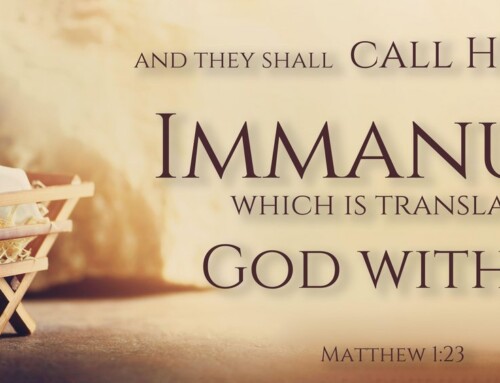Read Clint Decker’s HOPE FOR TODAY column post here or on the blog site.
I have a fellow minister friend who has an effective and growing ministry to teens and college students. One of his challenges to them is to stop yelling at each other on sensitive issues and come to the middle. Differing views on homosexuality are one of those subjects that generate much disagreement. According to a religious survey on same sex marriage conducted in 2017, over 60% of Christians who attend more conservative churches oppose it, while nearly 70% of Christians in more liberal churches support it. Conclusion: we have a divided and confused church.
Where is the middle though? I think my friend is stating our attitude more than an actual position. We should have a Christ-like spirit of graciousness in our discussions, but then put a Bible in the middle of our conversation and point to it.
Denominations and local churches everywhere are being forced to wrestle with questions they probably never thought they would be facing. “Should our denomination ordain gay or lesbian pastors?” “What is our position on gay marriage and civil unions?” “Should our pastor officiate over a same sex wedding?” “Should our church welcome a homosexual who wants to become a member?” “Should our church leave a denomination that embraces gay friendly theology?”
God’s Word says, “Do not be deceived: neither the sexually immoral . . . nor adulterers, nor men who practice homosexuality . . . will inherit the kingdom of God” (1 Corinthians 6:9-10). I agree with this statement and believe God sees homosexuality as a form of sexual immorality, no matter if it is consensual or not, and declares it sinful just like adultery. To explain further, God views any sexual activity (even lustful thoughts) outside of marriage between a man and woman, as violation of His divine law and unholy. To believers in Christ who agree with the above statement, here are three things we can do in this climate of inclusivity and equality.
1. Engage in discipleship. Discussions on homosexuality need to move from a social and political nature, to a discipleship one, especially among the younger generations. Senior Pastors and Youth Pastors, I urge you to regularly teach what the Bible says about homosexuality. Currently the media, school teachers and university professors are discipling them. I know it is controversial and sometimes silence is preferred, but if the church is not going to disciple them, who will?
2. Show kindness. Love does not mean approval of conduct. Jesus taught us to love one another, and love means to show kindness and compassion. As a body of Christ, while we disagree with homosexuality, let us over flow with kindness and compassion to those in the life style and to those who advocate for it.
3. Lift up Jesus. When I am listening to a Christian radio station, and I hear a church leader talking about homosexuality, I yell, “Where is Jesus?” Too often we get quoting verses, explaining positions, or even wander into the political realm and leave Jesus knocking at the door, waiting to be brought into the conversation. As a church, let us recommit to always make Jesus and His work on the cross, to be the center piece of any discussion on homosexuality. I left off verse 11, in the First Corinthians passage which says, “And such were some of you. But you were washed, you were sanctified, you were justified in the name of the Lord Jesus Christ and by the Spirit of our God.” In Jesus, there is hope for the sexually immoral. Additionally, in Jesus, there is hope in the face of division. Walls that divide us can come down as we mutually submit to His holy Word and love one other.
A prayer for you to pray– “Lord God, I pray for the church in America and the great division among us over homosexuality. Come Lord, unite Your church around Your Word. Let us humble ourselves before you and one another. Revive us, oh Lord! In Jesus’ name. Amen.”






